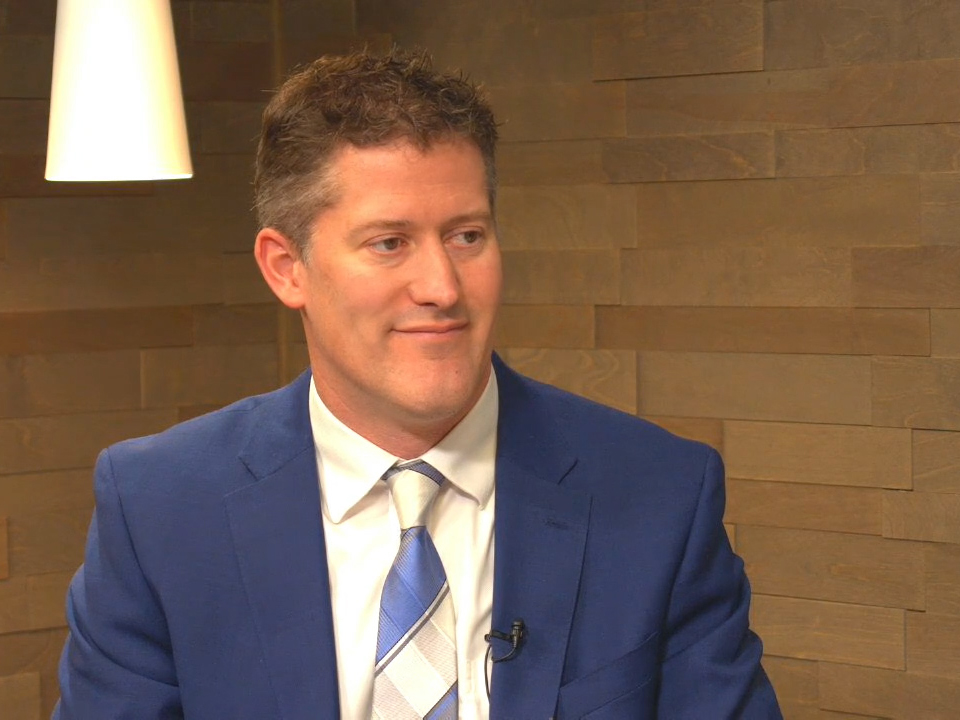The Centers for Disease Control and Prevention has recommended approval of the Pfizer-BioNTech COVID-19 vaccine for the 12 to 15 year-old age group.
The authorization expands the pool of eligible vaccine recipients to cover an additional 17 million children and comes at a time when people under age 18 account for one 1 of every 5 newly reported coronavirus infections.
Sanford Health is now vaccinating all age groups 12 and over against COVID-19.
All vaccines safe and effective
Sanford Chief Physician Jeremy Cauwels, M.D., said now is the perfect time for young people to get the vaccine.
Watch: Dr. Cauwels joined Sanford Health News for a Facebook Live Q&A, May 20, 2021
The more individuals get the vaccine, the faster we can get back to a semblance of normalcy.
“My teenage son spent 60 days missing school, missing activities, missing other things,” Dr. Cauwels explained. “And he didn’t get the coronavirus until much later.”
He said the vaccine allows us the freedom to be part of the things we enjoy again without having to worry about passing the virus to someone else.
“I think that’s one of the biggest wins.”
He said the Food and Drug Administration and Pfizer continue to study the vaccine’s safety and efficacy in children younger than 12.
‘Long COVID’ in kids
The long-lasting effects from the coronavirus in children are very real. Dr. Cauwels said colleagues in the pediatric intensive care unit are seeing kids weeks and months after a positive, mild case of COVID-19.
“Kids are still having symptoms like shortness of breath and cardiac issues,” Dr. Cauwels said. “The ‘long haul syndrome’ is certainly common in children just like in adults.”
Working with college swimmers, he sees lingering effects six months post-COVID.
“Some of them still aren’t back to their initial college competition times,” Dr. Cauwels said. “For those highly trained athletes, it’s concerning because that’s the performance earning you your scholarship and helping you get through college.”
He said the vaccine is our best option to prevent severe illness or any long-term effects as it far outweighs the risk of getting the disease itself.
Get the vaccine, lose the mask
The science is clear and the CDC’s new mask guidelines say if you’re fully vaccinated, you don’t need to wear one — in most places.
Those places include, but are not limited to, clinical settings and other health care facilities.
“The vaccine gives you freedom,” Dr. Cauwels added. “You can get back to doing the things you want to.”
He cites an article in the Washington Post by Monica Gandhi, M.D., an infectious disease specialist and professor of medicine at the University of California, San Francisco. In the article, Dr. Gandhi understands people’s anxiety about unmasking after vaccination but says the science is sound:
“Do not be afraid to follow the science on the CDC’s current mask guidance as you followed the science before vaccines,” she writes. “Embrace their effectiveness, accept increasing normalcy, and minimize further collateral damage as we emerge into this brighter and brighter light at the end of the U.S. epidemic’s tunnel.”
Protecting babies from COVID-19
According to recent studies, pregnant women show robust immune response to coronavirus vaccines and are passing antibodies to newborns. Moms across the country, including in Fargo, North Dakota, are grateful for the ability to do that.
Sanford Health News met new mom Erika Loegering of West Fargo who recently gave birth to Theo.
“(Theo) actually has COVID antibodies because I received the Pfizer COVID vaccine when I was pregnant with him,” Loegering said. “I was able to get two doses in before he was born.”
Read: Baby born at Sanford Health with COVID-19 antibodies
A study conducted in the Dakotas has proven that mom does indeed give COVID-19 antibodies to her baby.
“I think that’s really important because clearly what we don’t know right now are those long-term effects of getting the virus,” Dr. Cauwels said.
Get vaccinated
Sanford Health is committed to helping you get vaccinated against COVID-19 as soon as possible.
All residents of Iowa, Minnesota, South Dakota and North Dakota ages 12 or older are now eligible to receive a COVID-19 vaccine. If you have any questions or concerns, explore our COVID-19 vaccine FAQs.
Schedule through My Sanford Chart: Make an appointment
Schedule as a guest: Make an appointment
Read more
- Head physician confident in vaccine for his teen daughter
- COVID-19 vaccine: Separating myths from facts
- COVID-19 vaccines available at primary care clinics
…
Posted In Children's, COVID-19, Expert Q&A, Immunizations

